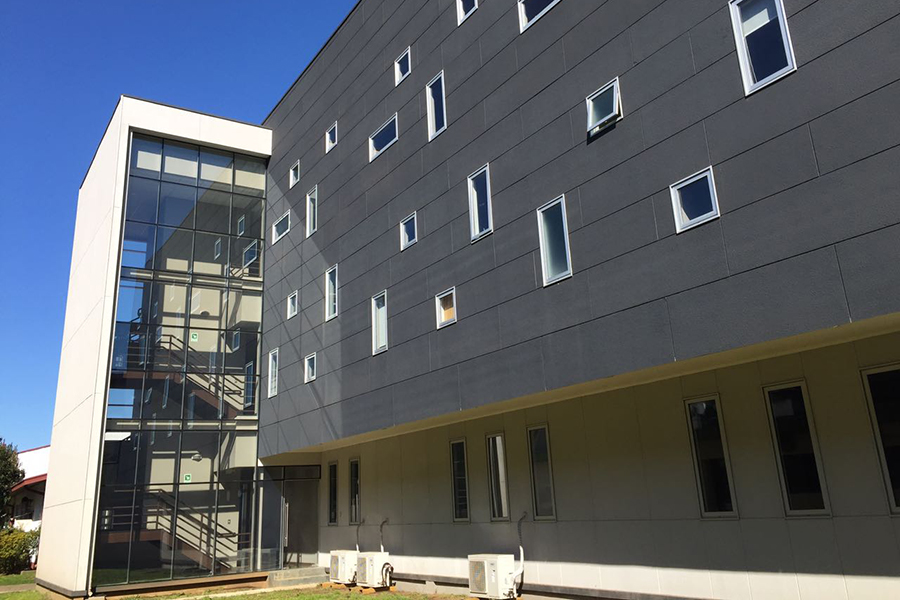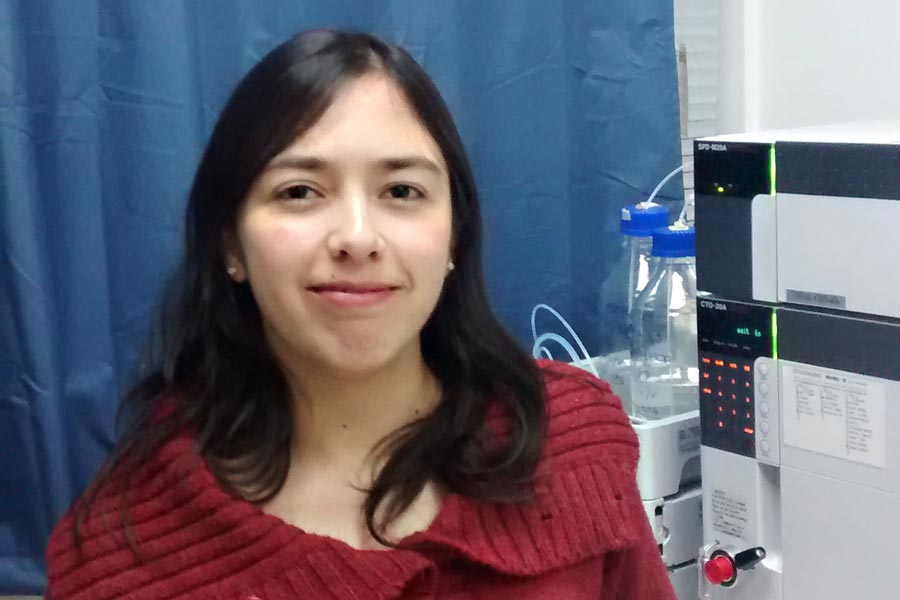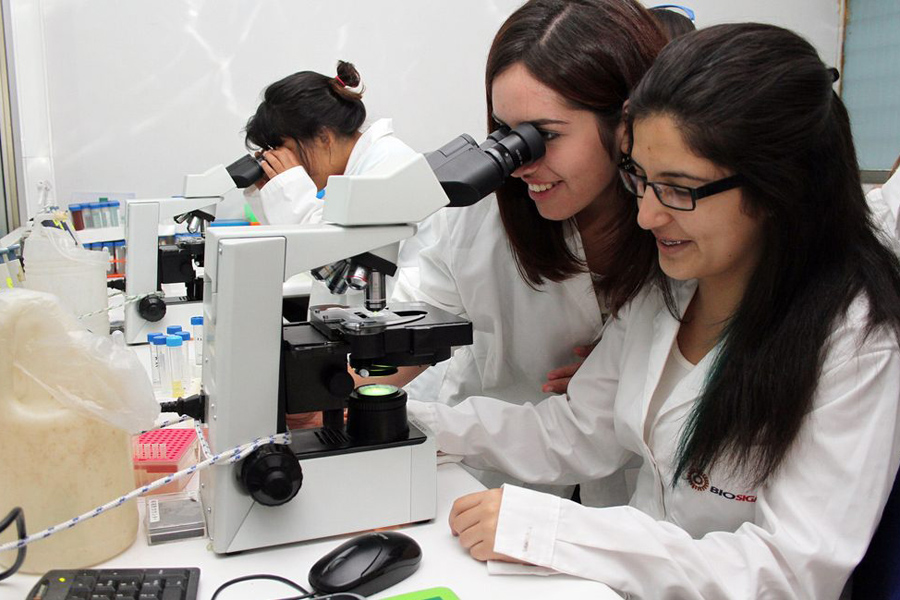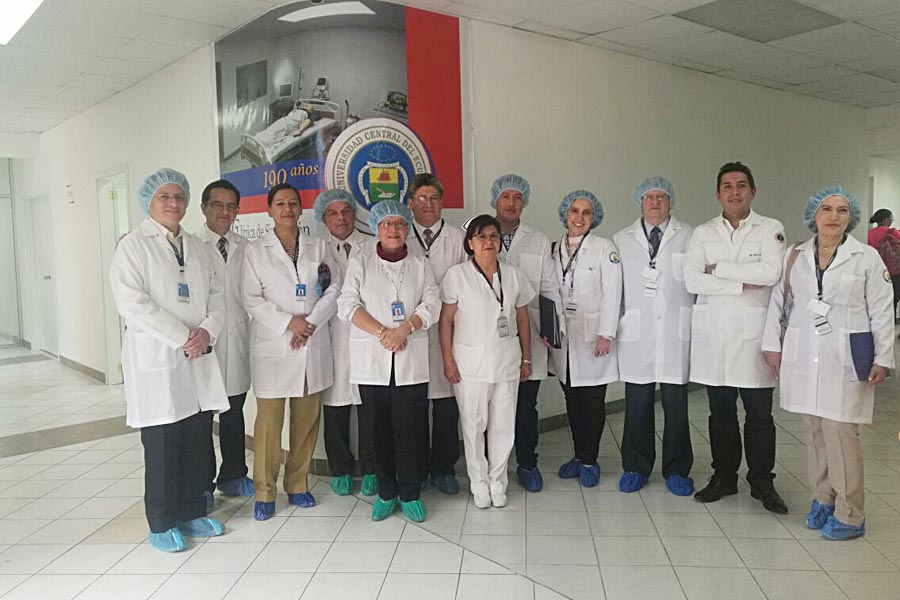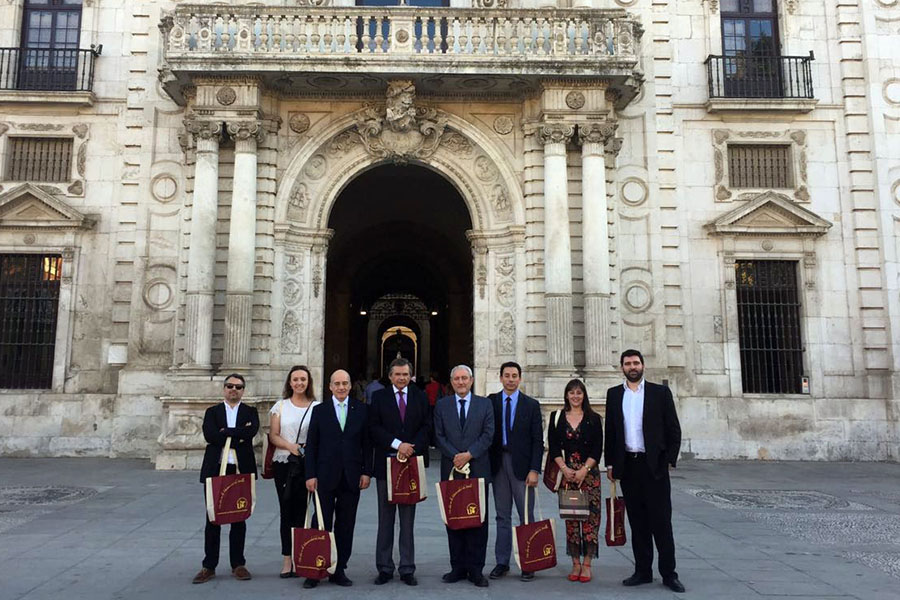|
This week, on September 25-28, international experts will get together with academics, students and the directors of the PhD programs in Natural Resource Sciences and Sciences with mention in Applied Cellular and Molecular Biology. The German agency AQAS is in charge of the assessment of quality and development of the processes of both programs that want to guarantee excellence at an international level. |
This week, on September 25-28, international experts will get together with academics, students and the directors of the PhD programs in Natural Resource Sciences and Sciences with mention in Applied Cellular and Molecular Biology. The German agency AQAS is in charge of the assessment of quality and development of the processes of both programs that want to guarantee excellence at an international level. Four academics and one PhD student are part of the committee of international experts, who are visiting the PhD program in Sciences with mention in Applied Cellular and Molecular Biology and the PhD program in Natural Resource Sciences of the Universidad de La Frontera for four days, for their international accreditation. The group consists of Dr. Elke Bloem of the Federal Research Centre for Cultivated Plants, Dr. Patricia Gandini of the Universidad Nacional de la Patagonia Austral, Dr. Robert Hänsch of the Technical University Braunschweig, Dr. Patricia Hidalgo of the International Helmholtz Research School of Biophysics and Soft Matters and Jorge Moreno, doctoral student of Molecular Biology at the University of Mainz & BioNtech RNA Pharmaceuticals GmbH. The international accreditation is part of the agreements that have been established in the performance agreement of internationalization of PhD programs, which the Universidad de La Frontera is carrying out. Until now, no PhD program in Chile has received this acknowledgement. In contrast to the national accreditation process, the assessors sent their observations before their visit, so the Institution could enhance its strengths and improve weaknesses. The process started in January with the signing of the accreditation agreement between the Rector Sergio Bravo and the agency AQAS. After that, members of the Institutional Analysis and Development Division that support the process assisted at a training in Germany. In April, the UFRO handed the first preliminary report to the accreditation agency with the aim of determining the admissibility. After that, a new report about the national accreditation processes of each program had to be elaborated and in response to this report, the experts sent their observations of what had to be improved. The next step is the visit of international experts which is taking part until September 28. |
|
The pigments of potato peel that contain all ranges of red and purple may be an alternative to industrial colorants and provide similar benefits as berries. |
To include healthy food in our diet is, more than a tendency, imperative for the human well-being. In this context, to consume healthy food that, in addition, has functional ingredients is a big plus, not only because they provide other properties but also because it is an innovation at the production level. With this idea in mind, the UFRO researcher of the Department of Chemical Engineering, Dr. Antonieta Ruiz, wants to extract the potato peel pigments of native potatoes from the south of Chile and incorporate them as colorants for their use in the food industry. “I found out that they contained very high concentrations of anthocyanin, which is a pigment of the same kind that you can find in berries and that has a lot of beneficial biological activities and I thought it would be interesting to explore what we could do with it.” POTATOES´ BONUS This question was the basis for a FIA Project (Agricultural Innovation Foundation) with a budget of more than 200 million Chilean pesos and which examines more than 40 types of potatoes with different tonalities. “We want to extract these pigments and use them in the food industry as a substitute for artificial colorants, mainly in dairy products, flavored milk and some pastry products.” At the moment, Dr. Ruiz is in the middle of the selection and extraction process in order to verify which the optimum storage conditions for the required use are. “We are exploring the appropriate varieties for obtaining pigments with potential of health benefit effects and with agronomic yield. At the same time, we are creating stable extraction protocols in order to guarantee food safety and to make sure a stability that permits their massive use as an alternative to synthetic colorants. This would give the potatoes an unexpected value as raw material”, she concluded. Written by: Lorena Espinoza
|
|
With the objective to promote the work of female researchers, the Chilean Academy of Science opened the contest of Excellence in Science “Adelina Gutiérrez” 2017. |
The contest is addressed to young female scientists from Chile or abroad, resident in Chile, maximum age 40 years (on December 5, 2017), who did or are developing a career as a leading researcher in Chile. The price consists of US$ 1500 (equivalent in national currency) for the winner who will be chosen by a jury of members of the Chilean Academy of Science. The candidates have to hand in their complete academic curriculum, with information such as education, research work, prizes and presentations, and a sample of the most relevant publications (max. 5). These documents have to be presented at the Academy of Science, Almirante Montt 454, Santiago, Chile (Monjitas alt. 500, between Mosqueto and Miraflores, Metro Bellas Artes), until October 21, 2017, at 5 p.m.
|
|
Ximena Osorio Spuler was one of the international assessors for the nursing program accreditation at the Universidad Central de Quito in Ecuador. |
As part of her visit, the academic Ximena Osorio visited the premises of the nursing program, the Hospital Eugenio Espejo in Quito and the Health Center Cochapamba Sur (community center), which are both part of the nursing program of the Ecuadorian university. According to the information of Osorio, it is important for the Assessment, Accreditation and Higher Education Quality Assurance Council of Ecuador (CEAACES) to count with a selected group of international external assessors that are part of their technical groups, to add interdisciplinarity and new knowledge to the assessment process of the nursing programs offered by the institutions of higher education in Ecuador. This is why they invited professionals from abroad, such as Ximena Osorio. “I had to do previous work, where they sent me information and we had online meetings in order to review and analyze documents and the work to do during the stay in Ecuador. They established the necessity to count with external assessors and it was a very enriching experience, since I got to know the reality of education and of the nursing training programs in Ecuador. They are standardizing and regulating their training”, she specified. The criteria that are part of the assessment model for the learning atmosphere of the nursing program in Ecuador are the relevance and context, where the current status, prospective, outreach and professional profile are considered, such as the curriculum (macro and micro) with the graduation profile and the curricular project, the syllabus, etc. After visiting the clinical campus and the practice and training installations, they worked on the reports that had to be handed to the CEAACES (equivalent to the Chilean Accreditation Commission) and this way, finished an intense week of work. “Compared to Chile, it is a different reality. Their training program has a different development since it is a traditional program at the most antique university of Ecuador. Their University was built decades ago and has a very different culture than ours. When it comes to disciplinary development, we could be more developed than they are, but in other areas they are highly developed with classrooms for skills training, implementation, strict assessment criteria and very high standards for their academics and students.” “It is very good for the UFRO that an academic of this University gets invited as an international assessor. Most of them came from Argentina and Colombia. We were only five people from Chile who got invited to participate in the assessment of 25 universities that went through the process. This is why it is relevant for the Universidad de La Frontera to be present”, added Osorio. Written by: Fabián Aguirre
|
|
The Council of Rectors of Chilean Universities (CRUCH) and the Spanish Rectors´ Conference (CRUE) signed an agreement to establish the bases for mutual cooperation, the realization of academic, teaching and research activities, the dissemination of culture, and the extension of services in all areas of mutual interest. |
Complying with the function of establishing international links for cooperation between different universities, the Council of Rectors (CRUCH), represented by its Executive Vice-President, Rector Aldo Valle, signed the collaboration agreement with the Spanish Rectors´ Conference (CRUE). This agreement, which started at the moment it was signed at the headquarter of the CRUE in Madrid, Spain, wants to strengthen the alliance between both entities in order to exchange models of good practice, advance in the recognition of degrees, joint PhD programs and agreements on double degrees between Spanish and Chilean universities, and encourage mobility and research collaboration. It is valid for three years and can be renewed for the same period of time, in accordance with both parties. With the objective of the correct fulfillment of this agreement and the details specified in it, there will be a mixed commission, represented by two members of the CRUE and two members of the CRUCH. One of the members of each party will necessarily be general secretary of the entity or person for which he/she delegates. The delegation of the Council of Rectors of Chilean Universities, present at the signing ceremony of this agreement, was represented by the CRUCH Executive Vice-President and Rector of the Universidad de Valparaíso, Aldo Valle, the Rector of the Universidad de La Frontera, Sergio Bravo, the Rector of the Universidad Técnica Federico Santa María, Darcy Fuenzalida, the President and Vice-President of the CRUCH Internationalization Commission, Julio Crespo and Marcos Avilés, and the Academic Director of the Council of Rectors, Cristian Blanco. The delegation of the Spanish Rectors´ Conference CRUE, was represented by the CRUE President, Segundo Píriz Durán, the General Secretary, María Teresa Lozano Mellado, the Director of General Services, Carlos Martínez, the Director of Coordination and Support for Sectoral Commissions, Gema Luna, and the responsible for Institutional Projects, Víctor Jiménez Jara. Continuing with the program, the CRUCH delegation had a meeting with the vice-rectors and directors of International Cooperation of the CRUE and CRUCH, who are at the EAIE Conference of the European Association of International Education in Seville, Spain. Source: CRUCH Communications Area |





